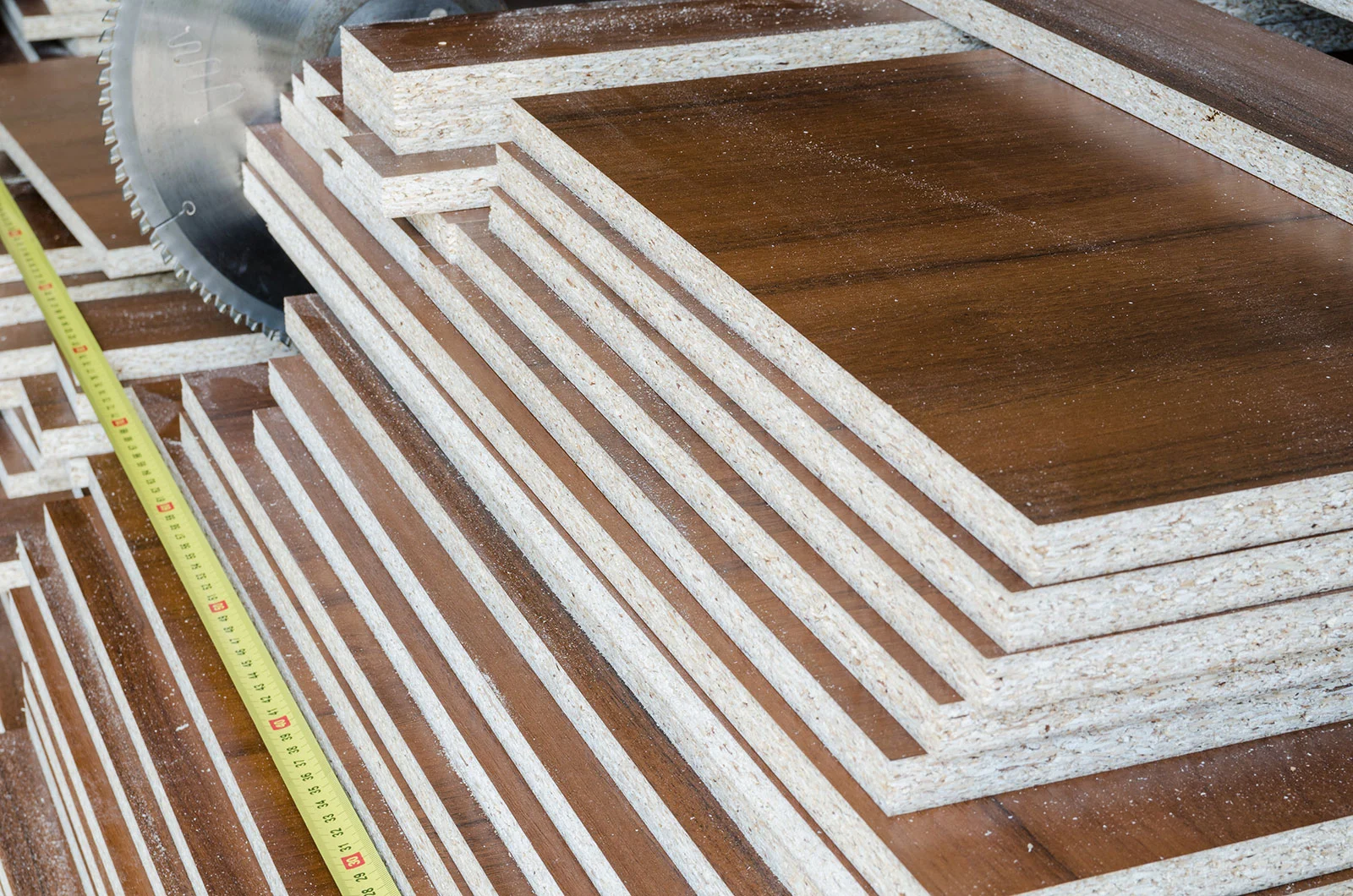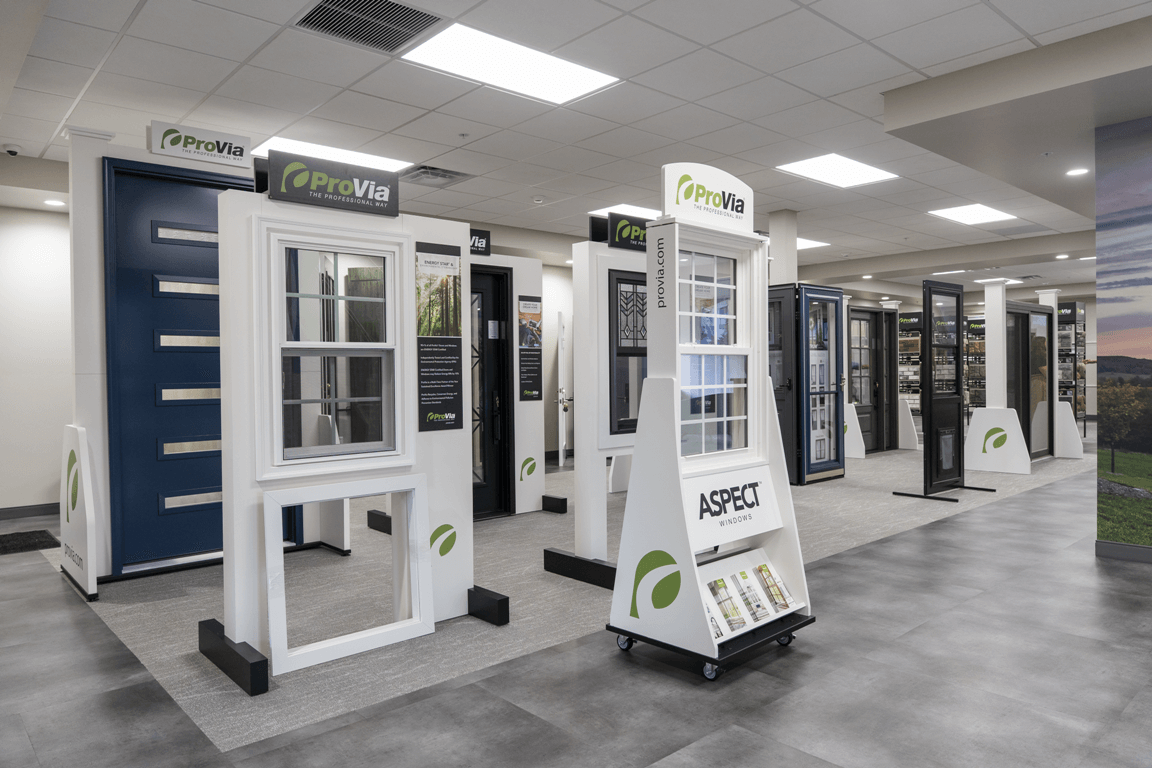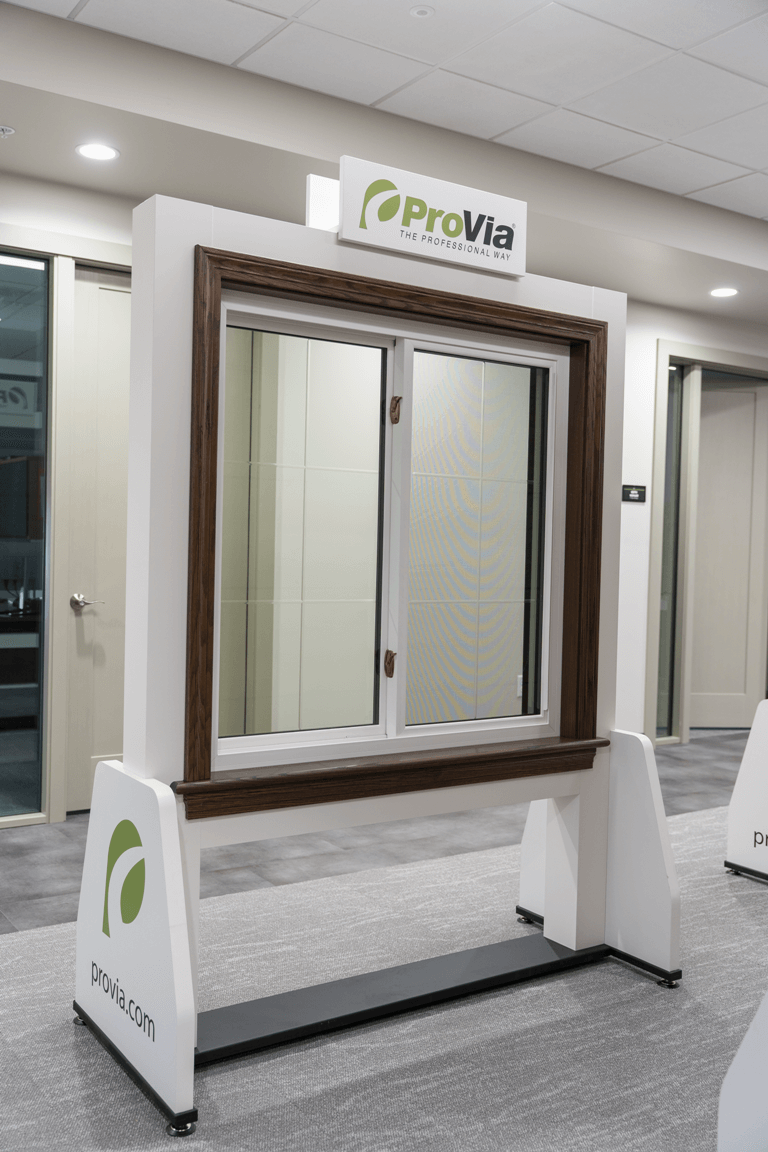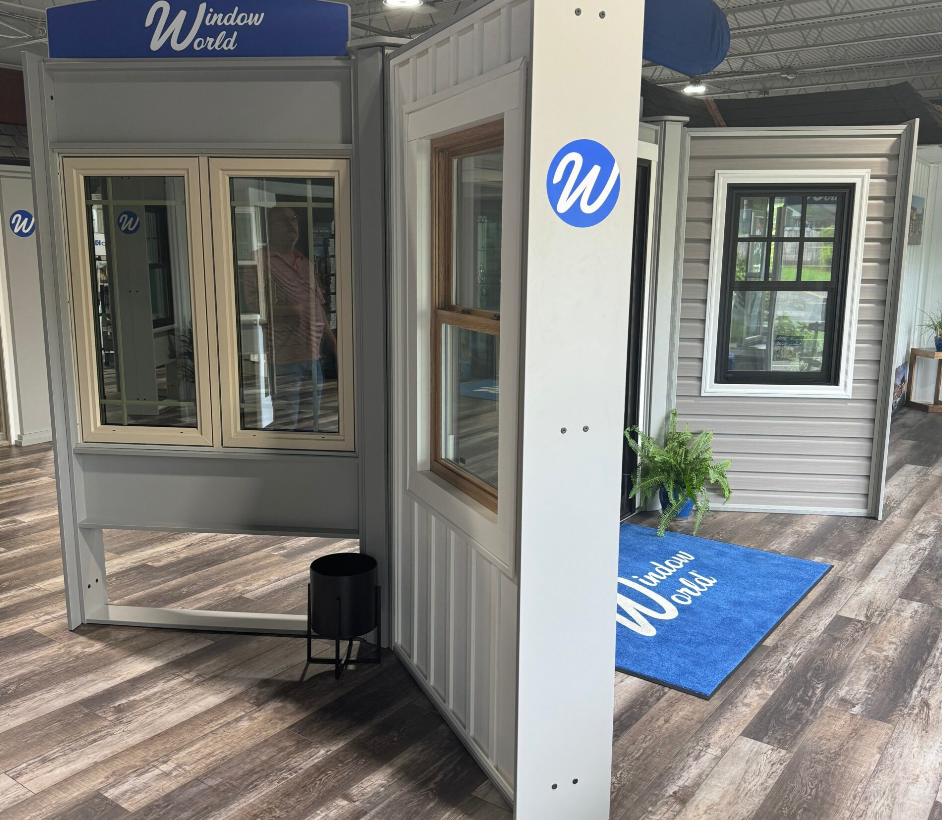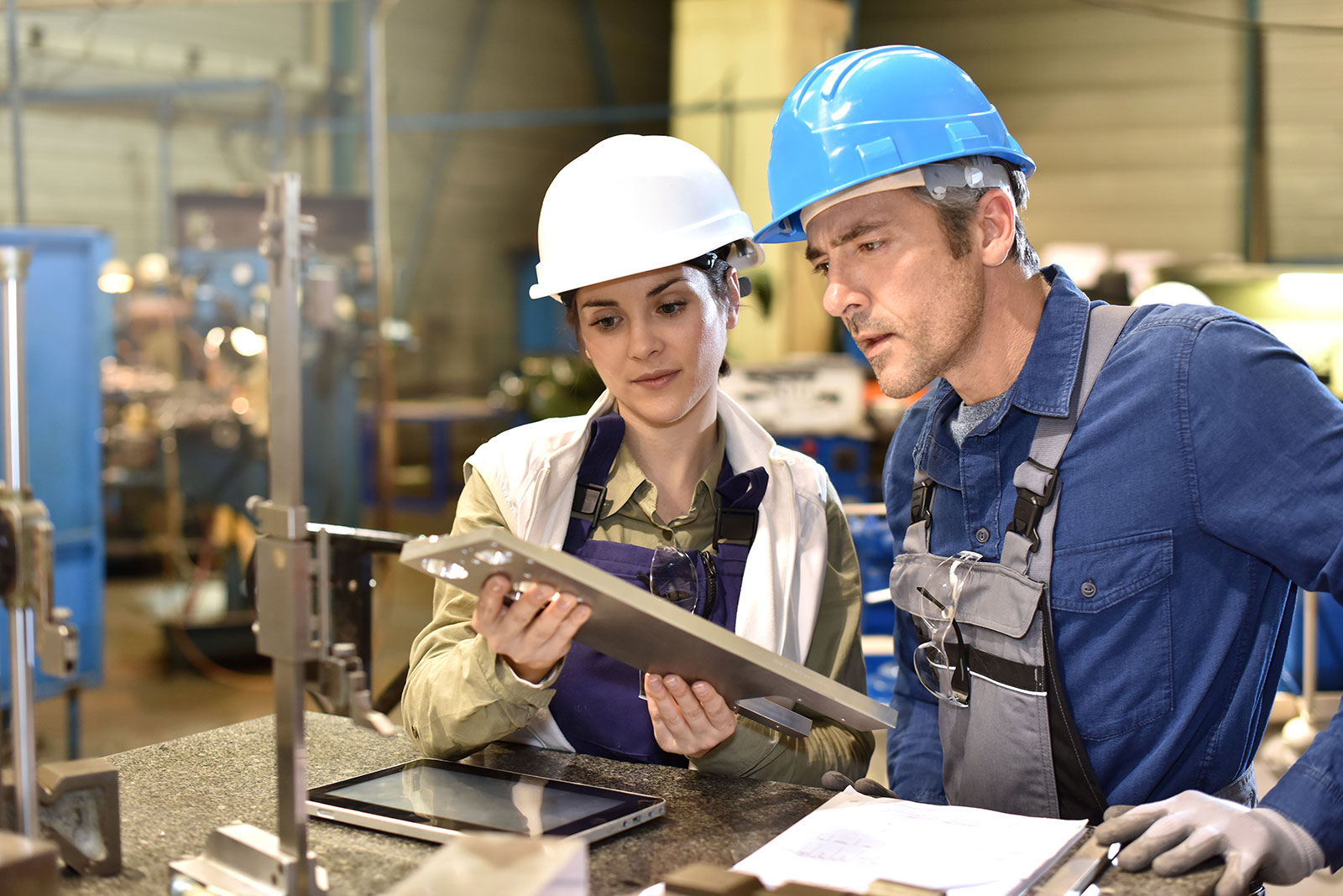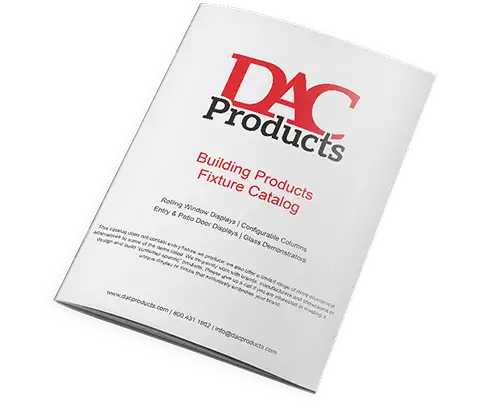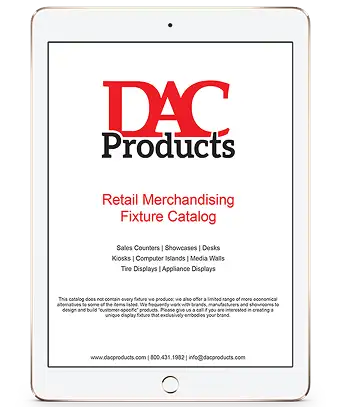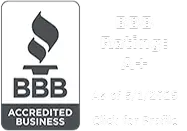When it comes to creating high-quality displays and retail fixtures, it’s no secret that some materials are better than others. However, with so many different materials used in the manufacturing and build process, it’s challenging to know which materials are best for your retail and showroom fixtures. At DAC Products, our mission is to create fixtures that fit the needs of your business, using materials with integrity. That’s why today, we’re going to compare two types of fixture materials and see which one suits your needs: particle board vs. MDF.
As two popular forms of wood composite, particle board and MDF (medium-density fiberboard), are often used to create retail fixtures and showroom fixtures. However, it’s difficult to tell the difference between these two choices when it comes down to it. Today, we’re comparing particle board vs. MDF by taking a closer look at their appearance, price point, and overall composition so that you can make the best choice for your retail fixtures and space.
The Difference Between Particle Board vs. MDF
The main difference between particle board vs. MDF rests in each materials’ composition, texture, and strength. While these might not seem like significant differences, overall, these three components showcase what makes particle board or MDF the right choice for your products.
Even though these materials have similar properties and appearances, comparing them side by side reveals a few key differences that can help you decide which material is best for your retail fixtures.
What is Particle Board?
Particle board is a wood composite product made from resin, chemicals, and other wood materials. Typically, these could be wood chips or sawdust that are small enough to be processed with the resins and chemicals. Even though particle board has an artificial wooden appearance, the added resins and chemicals make the material water and fire-resistant, so any potential accidents are less problematic. Particle board’s ideal for more humid or even damp spaces.
These materials are combined and compressed together with great force, creating one firm surface suitable for building and manufacturing fixtures or displays. Because more extensive wood materials and fibers are used to make particle board, it has a thicker composition and texture; however, it’s also more pliable than MDF.
Particle board is a material that’s lightweight, long-lasting, and can be used to construct retail fixtures or showroom fixtures. Particle board is also low-cost, which means it’s ideal for bulk orders and manufacturing, especially for items requiring frequent transportation or movement.
What is MDF?
MDF, or medium-density fiberboard, is an engineered wood substance. While particle board has many different wood fibers, MDF comprises tiny wood fibers that leave behind no markings, just layers of texture. Just like particle board, other components help create MDF, like glue, heat, and pressure, before it’s sealed. This leaves the MDF fireproof or waterproof, depending on the sealant.
Like particle board, MDF is a very affordable material, so it’s ideal for large product orders. However, it has a less textured appearance, is incredibly smooth, and is much denser and more substantial than particle board. While it’s great to have a long-lasting material in your space, its increased density adds to the overall weight of a fixture or display. MDF fixtures are incredibly durable but will be challenging to move or rearrange.
The Bottom Line
While both of these materials are a form of wood composite, they’re still incredibly distinct from one another. Particle board is made from larger fibers, and has a textured composition, and is less dense. Meanwhile, MDF is made from smaller fibers and has a smooth texture with greater density. There are no actual downsides to either material because they’re both highly affordable and fantastic for manufacturing. It’s simply a matter of personal preference when it comes to particle board vs. MDF.
Particle Board vs. MDF – Which is Better?
Even though these materials are unique in their own way, they both provide valuable benefits. While some might believe that MDF is slightly higher quality, it has a few disadvantages that make it difficult to move. Both options are distinct and valuable to the manufacturing industry – it’s a matter of personal preference for the manufacturer and the customer.
At DAC Products, we design and manufacture our products with materials that suit the needs of your space and products. We understand that every business is different, so why offer one universal material when there are so many to choose from? If you plan on rearranging and rolling out new products or even need trade show fixtures for life on the road, we’d recommend using particle board. However, if you plan to keep the same products on the shelves and they have more weight or heft to them, we’d recommend MDF. Our company also values customer input and satisfaction, so we’ll create products accordingly if you have a personal preference.
Experience Material Integrity with a Retail Display and Fixture Manufacturer
As a business owner, it’s challenging to know which types of materials are best for retail fixtures, showroom fixtures, and retail displays. You deserve items made with the utmost integrity from product manufacturers who care about the success of your business. At DAC Products, we want to design and manufacture fixtures and displays that elevate your products, which is why we only use high-quality materials in our manufacturing process. As retail display manufacturers, we understand that creating an inviting showroom, retail space, or tradeshow environment is critical to the success of your business. That’s why as a company, we make your long-term success our priority.
If you’re ready to take your business to the next level and work with display and fixture manufacturers that care about your success, request a quote from DAC Products today. Our team is here to help you create the best retail space, showroom, or tradeshow for your business.
